Together with an international consortium of French, Dutch, Irish and German partners, FIAP e.V. has been implementing the project “ENTER to Transform” since April 2020 to support start-ups and entrepreneurial activities of disadvantaged groups – in this case recognized refugees from North-West Europe (NWE).
The project is funded by the Interreg NWE program. In order to foster economic growth and innovation in North-West Europe, to offer new career perspectives and to reduce unemployment, sustainable structures are needed that have the potential to address societal challenges even in times of crisis. Measures such as support structures for start-ups for refugees with a permanent residence status, can be understood as an important preventive or countermeasure in the fight against disintegration and unemployment. They can initiate the development of new, local labor markets and, in the long term, contribute to the creation of new service fields, forms of enterprise and jobs.
The project “Enter to Transform” focuses on the increase in the number of start-ups by refugees in NWE by addressing on the one hand their entrepreneurial capacity and on the other hand the ability of institutions to deal with the target group as founders.
The Eurostat (2017) data show that in the target group in the Netherlands, Germany, Ireland, Switzerland and France, many have an entrepreneurial background and make a new start in the new country. Recognized refugees with business experience from their home country have high potential for a re-start, but at the same time need country-specific knowledge and mentoring tailored to NWE.
In the project, hubs are developed to provide this specific knowledge and open doors for this target group into the entrepreneurial support infrastructure through mentoring. The target group will learn to access existing tools they need to re-start. Mentoring is offered along the initiation, start-up and growth phases. Unlike existing initiatives, the focus will be on four sectors: Care, Craft, ICT Services and Trade.
Within the framework of transnational cooperation, close cooperation is established with all key stakeholders. Experiences between measure implementers, successful entrepreneurs, refugees, etc. are discussed in order to identify best practices. On this basis, (country)-specific support services are designed and implemented, as well as generalizable results are evaluated. Each partner region establishes its own hub based on a transnationally designed pilot hub.
Extensive evaluation activities are carried out by external experts in order to make an objective evaluation of the activities and support services. In addition, similar to Youth Impact, the measure implementers are closely involved in the evaluation processes and sensitized to the added value and empowered to self-evaluate – with the purpose of extending support offers for self-employment and entrepreneurship actions to other target groups and contributing to the prevention of unemployment and lack of perspectives.
For more information on the project, please visit:







